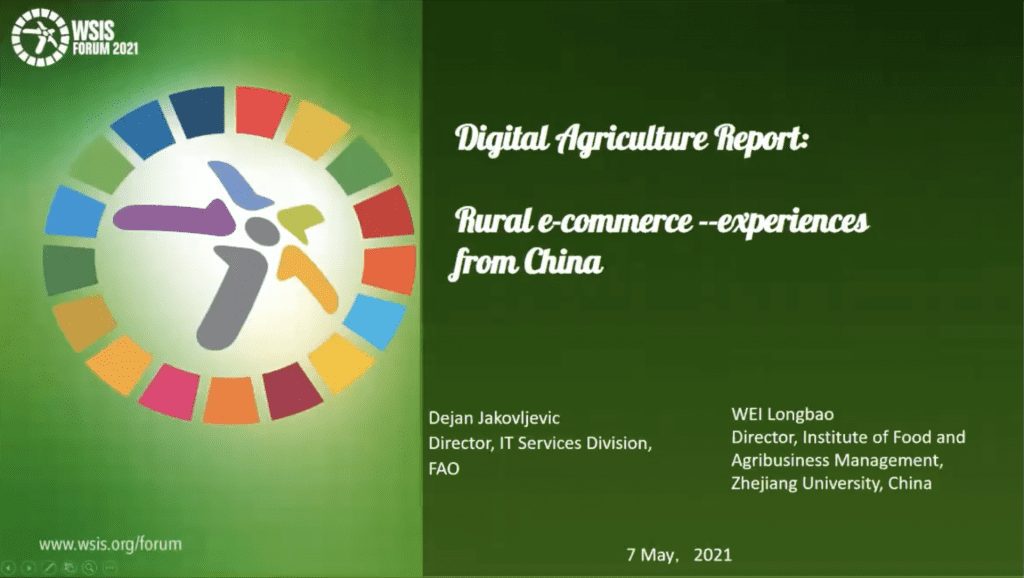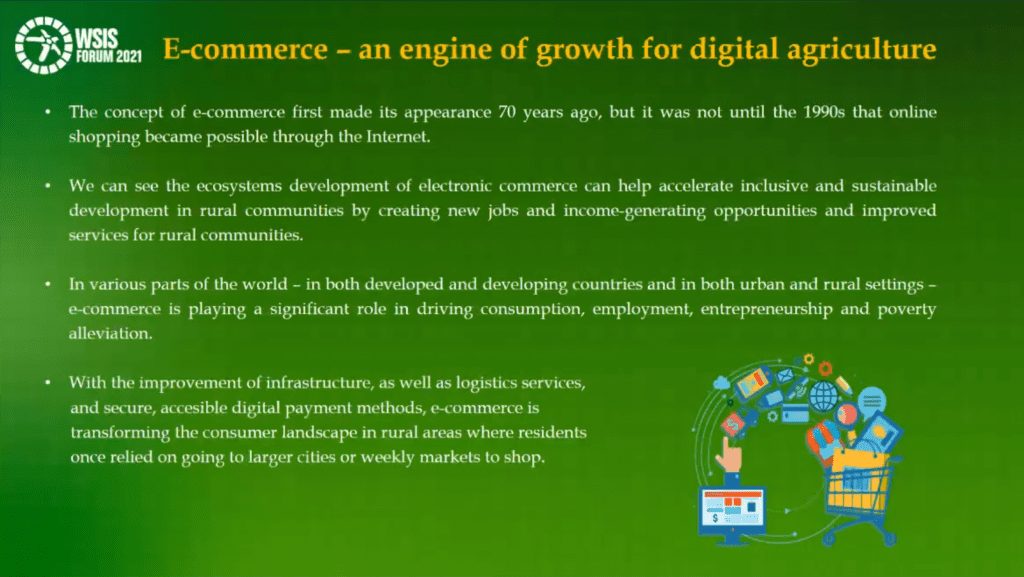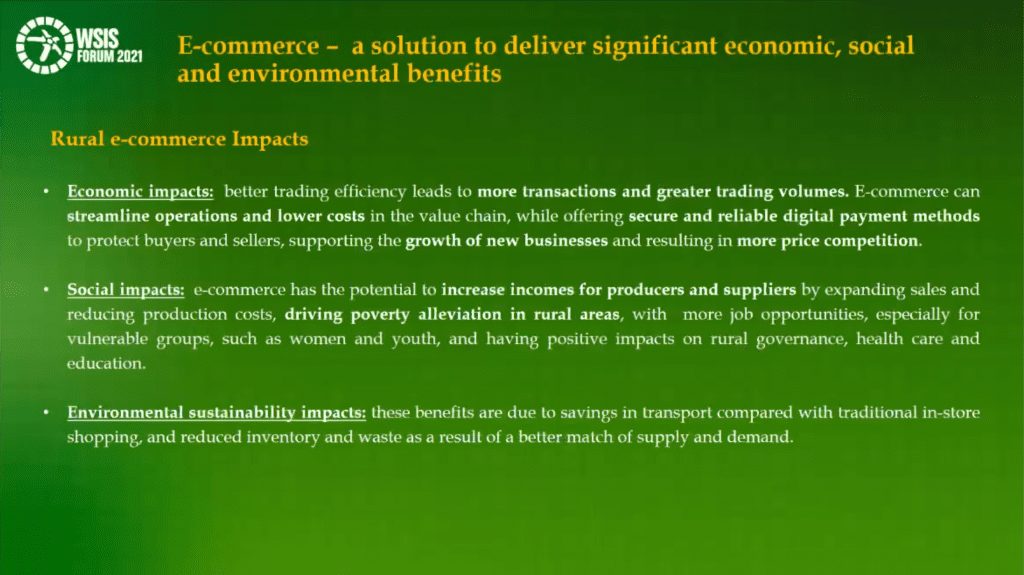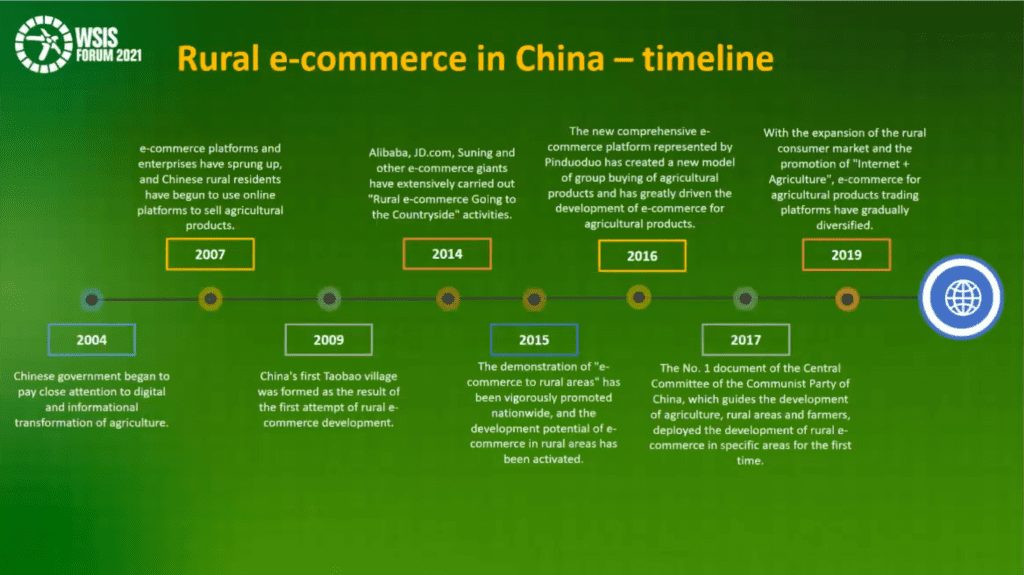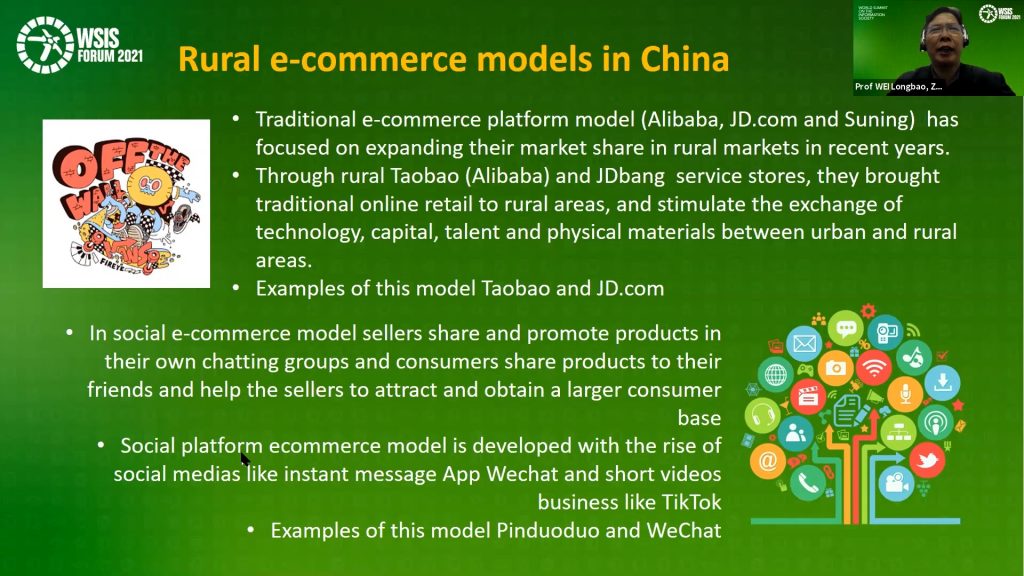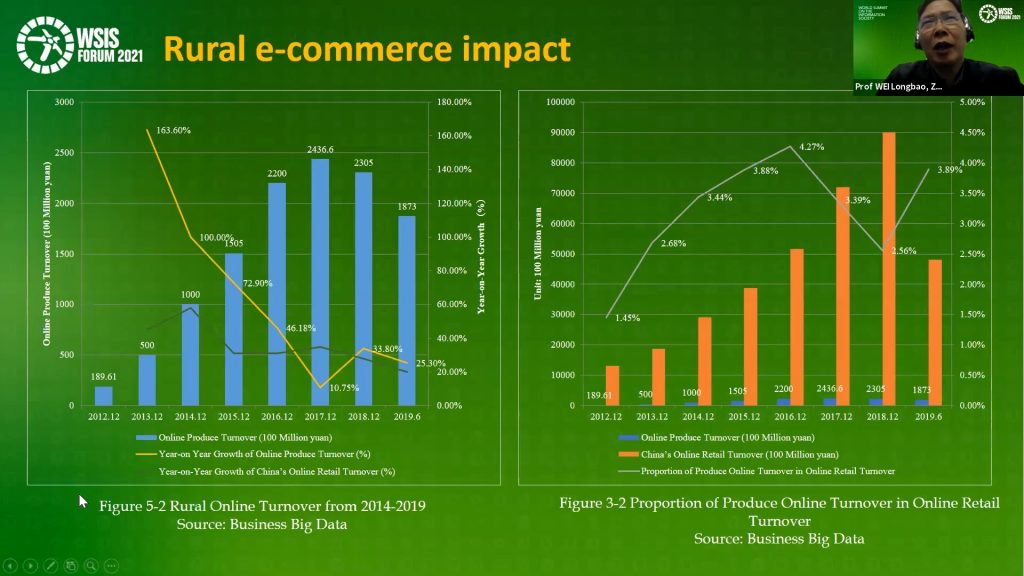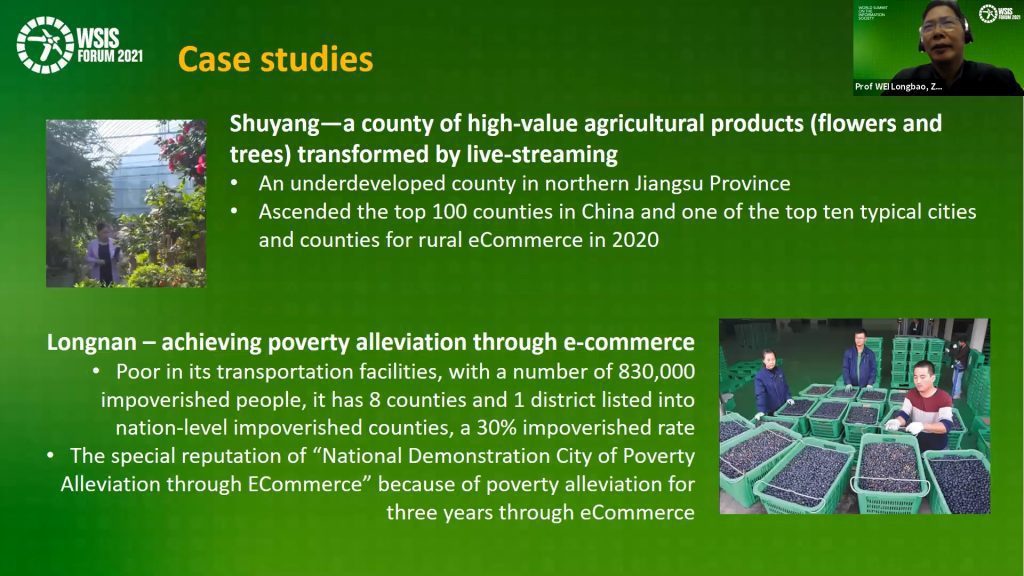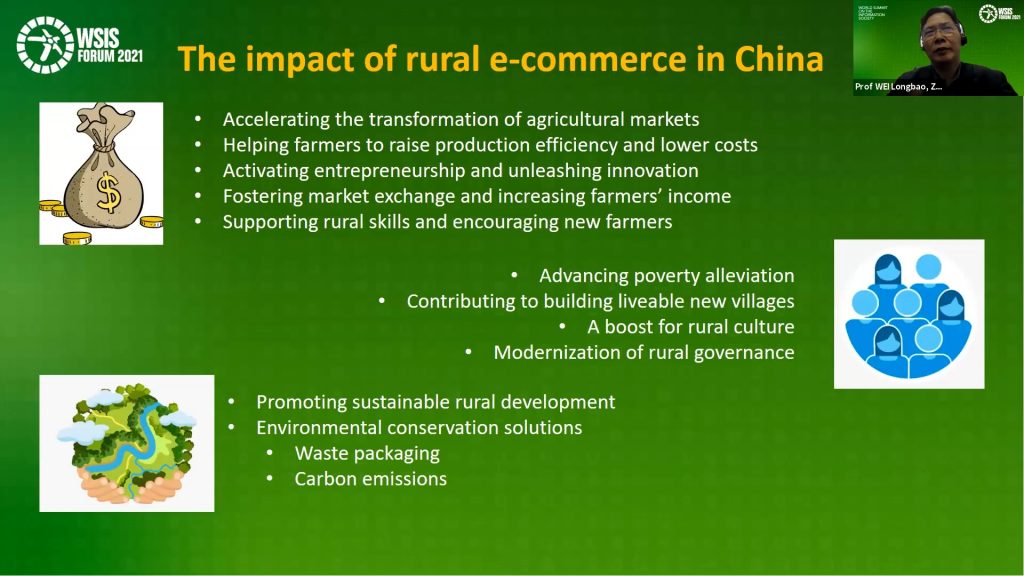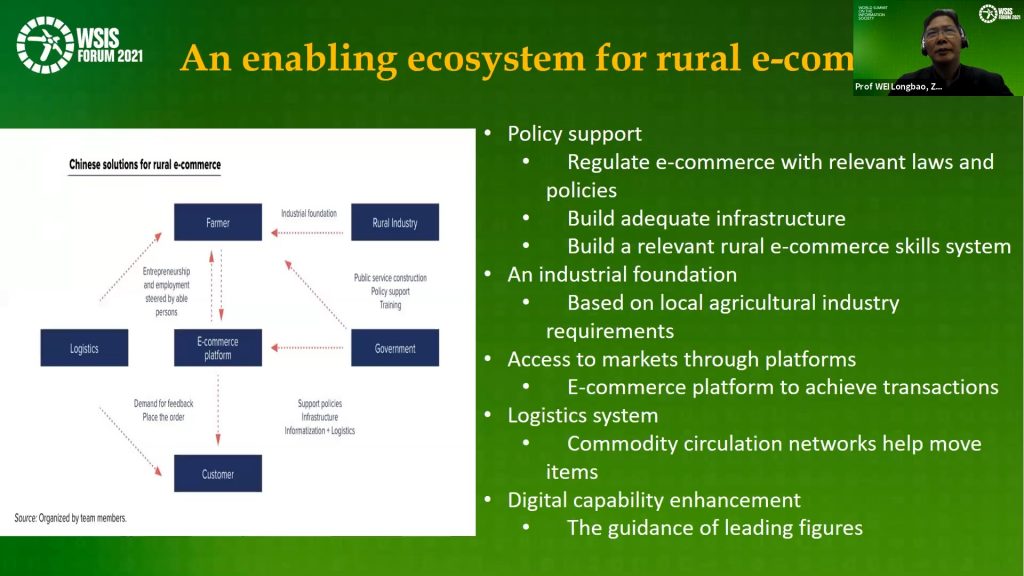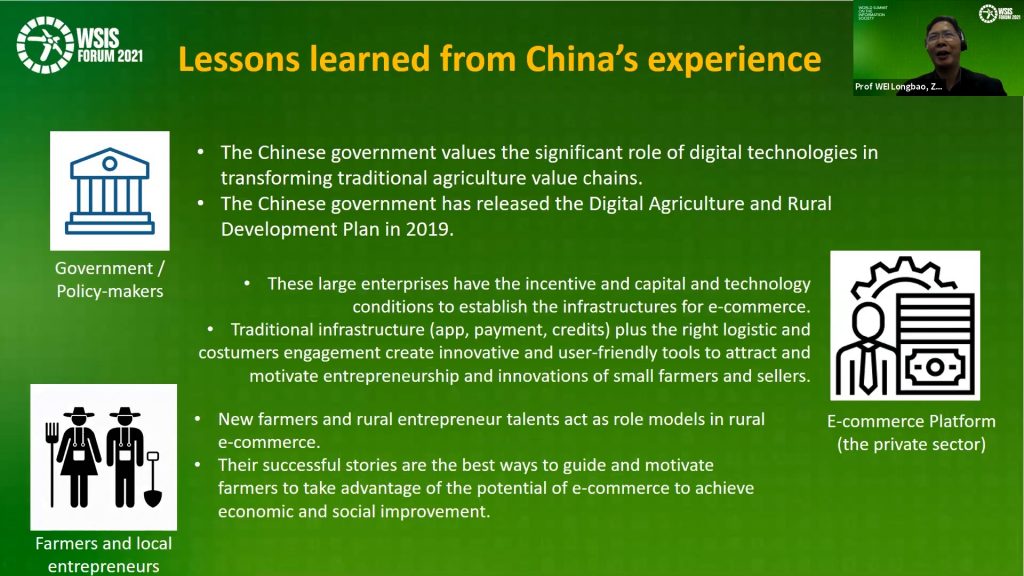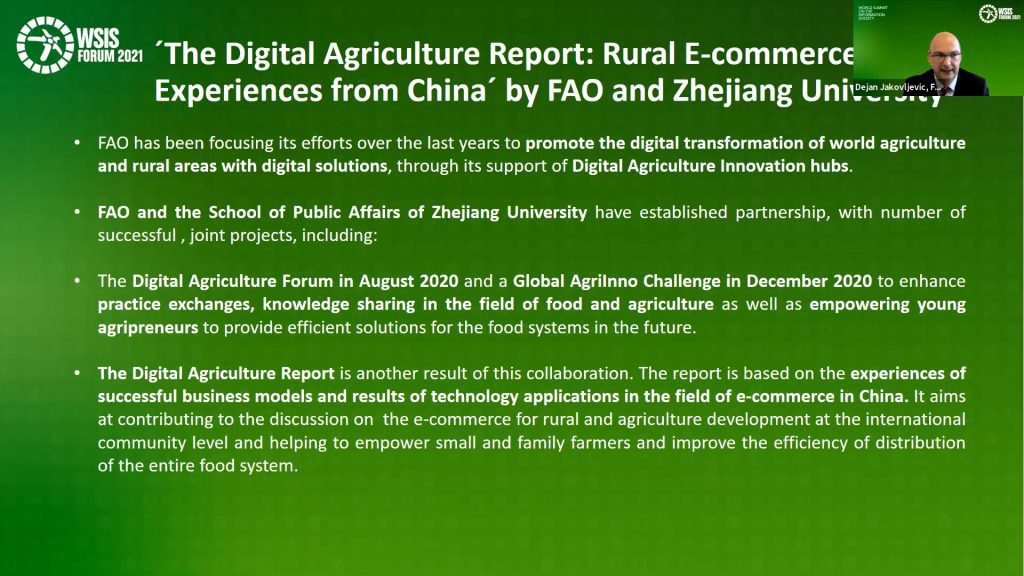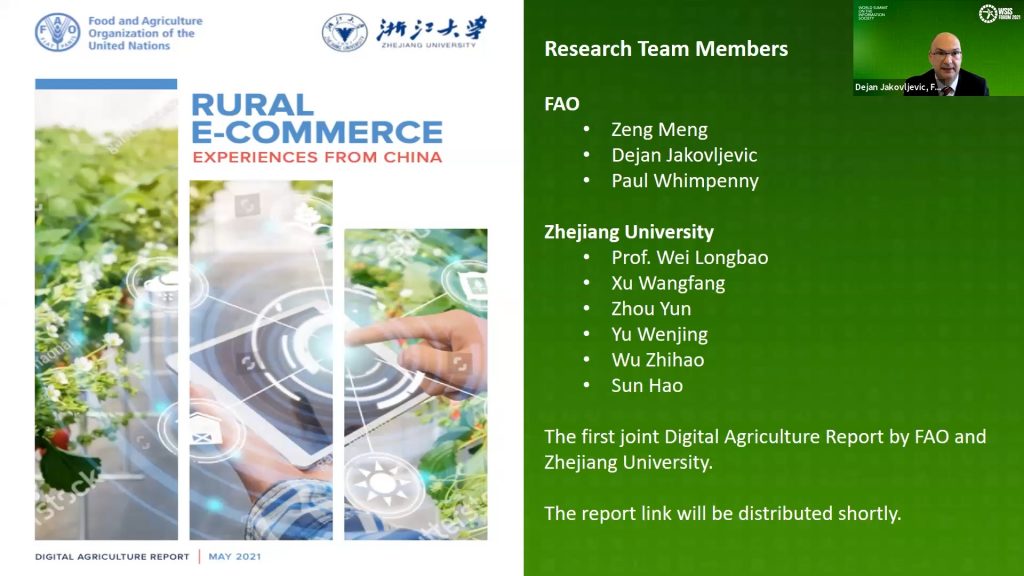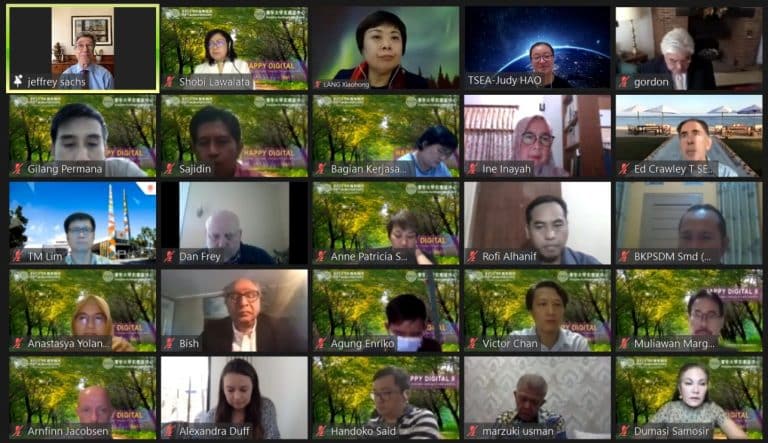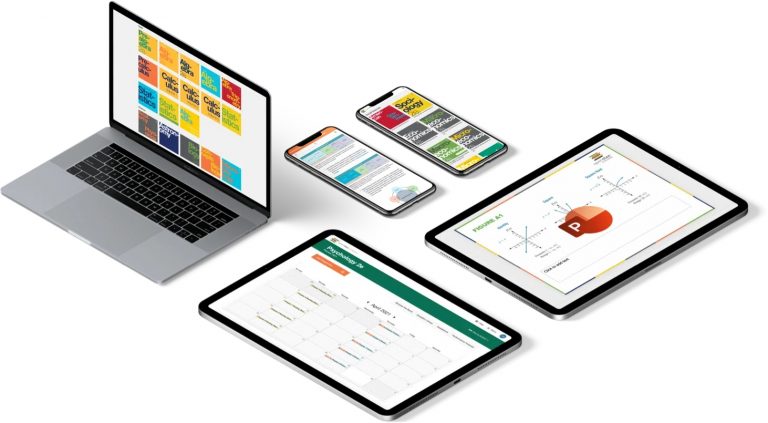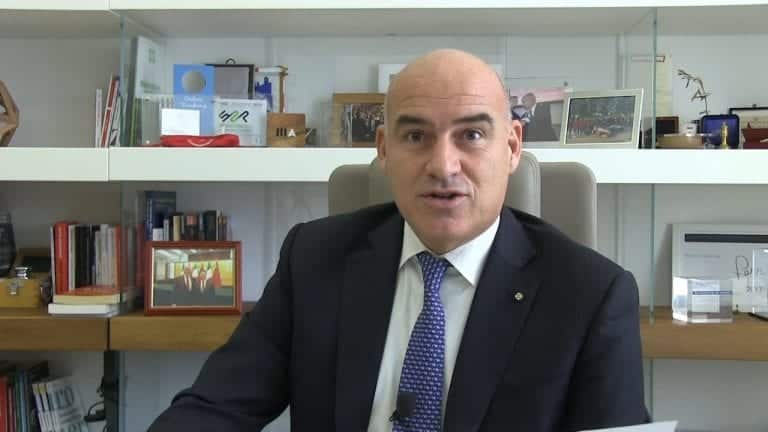“We must change course because we are at a critical moment in our time – the world is risking not to achieve zero hunger by 2030.” It is with those impacting words that Ismahane Elouafi, Chief Scientist of the Food and Agriculture Organization (FAO) opened the session on E-Commerce for Agriculture and Rural Development, held on May 7th in close collaboration with the International Telecommunication Union (ITU) under the WSIS Action Line C7: E-Agriculture at the World Summit on the Information Society (WSIS) Forum 2021.
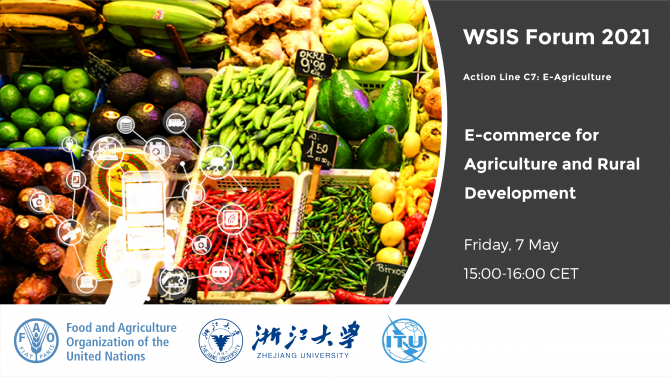
During this session, the overview of the Digital Agriculture Report: Rural E-commerce: Experiences from China was presented, as a fruit of the successful collaboration between FAO and Zhejiang University (a member of the Global MOOC Alliance).
In these times of economic slowdown and uncertainty but also of incredible developments in innovative technologies, a wide range of experts coming from various organizations, institutions, academics, as well as the private sectors gathered at WSIS for this particular event to discuss the potential of rural e-commerce, focusing on how it can impact rural development positively in this new era of digital agriculture, boost farmers’ livelihoods and learn from each other. Speakers included representatives from the World Bank Group, ITU, African Development Bank (Afdb) Inter-American Development Bank (IDB), Alibaba Group, and Nampya Farmers Market, one of the winners of the Global AgriInno Challenge 2020, co-organized in December last year by FAO and ZJU.
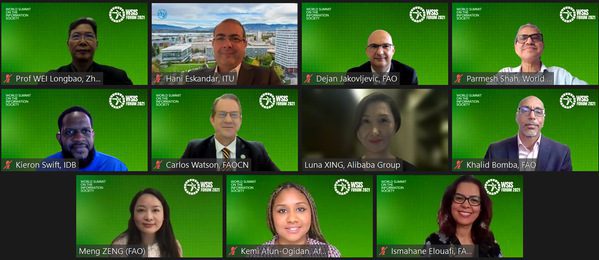
Dejan Jakovljevic, Director of FAO IT Services Division and Prof. WEI Longbao, Director of the Institute of Food and Agribusiness Management of Zhejiang University made a joint presentation, highlighting the experiences of successful business models and results of technology applications in the field of e-commerce in China. “We hope that this report will contribute to approaches and solutions that will help to accelerate inclusive and sustainable development in rural communities through digital innovation and e-commerce, with the aim of transforming the agri-food system,” said Prof Wei.
The joint presentation showed how the development of rural e-commerce improves the efficiency and productivity of agricultural production, accelerates the transformation of agri-food systems and achieves the sustainable development goals with concrete examples of China´s leading role in rural e-commerce, including its history, models and achievements.
“This is the first digital report between FAO and ZJU and meant to be the first of an important series. We will share the link shortly and welcome more partners to join this major initiative in the future,” said Dejan Jakovljevic.
“FAO believes that e-commerce to rural areas will increase farmers’ resilience, facilitate their access to markets and diversify their incomes, all particularly critical in light of restrictions related to the COVID-19 pandemic,” concluded Mr. Khalid Bomba, the newly appointed FAO Chief Innovation Director.
This article originally appeared on https://www.zju.edu.cn/english/2021/0531/c19573a2381005/page.htm, and https://www.itu.int/net4/wsis/forum/2021/en/Agenda/Session/260

